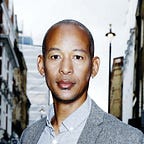The Challenges That Non-Fiction Writers Face
As a reader, I find non-fiction as compelling as fiction. However, non-fiction becomes a minefield when polarising conflicts are thrown in. Biographies and autobiographies are usually straightforward affairs in which history has as much a big part to play as character. Memoirs or real-life-based accounts, however, are a different kettle of fish. I was reminded of their complex nature recently after reading a diary entry by the Libyan-American writer, Hisham Matar, in the London Review of Books.
Hisham was in Arkansas last year touring his latest book, a memoir entitled The Return (I am acquainted with his work through his novel In the Country of Men). At a public reading at a library, a Syrian woman asks him how it is possible for him to still be able to write with everything that has been happening in the Arab world for the last half decade.
Hisham’s response made me think of the relationship between politics and literature. A relationship that is less natural than many people might think and more nuanced than many others would prefer.
In between these two positions: one claiming that all literature ought to be political somehow or other, and another saying that literature and politics should never mix, the writer’s voice is lost. If an author’s oeuvre depends chiefly on adhering to one of these two extreme positions, the result will not be a work of art but a party manifesto.
By coincidence around the same time I read Hisham’s article, I had just finished…
